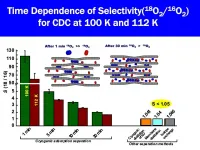(Press-News.org) The gut microbiome is an integral component of the body, but its importance in the human aging process is unclear. ISB researchers and their collaborators have identified distinct signatures in the gut microbiome that are associated with either healthy or unhealthy aging trajectories, which in turn predict survival in a population of older individuals. The work is set to be published in the journal Nature Metabolism. (Once the embargo lifts, you can access the paper here.)
The research team analyzed gut microbiome, phenotypic and clinical data from over 9,000 people - between the ages of 18 and 101 years old - across three independent cohorts. The team focused, in particular, on longitudinal data from a cohort of over 900 community-dwelling older individuals (78-98 years old), allowing them to track health and survival outcomes.
The data showed that gut microbiomes became increasingly unique (i.e. increasingly divergent from others) as individuals aged, starting in mid-to-late adulthood, which corresponded with a steady decline in the abundance of core bacterial genera (e.g. Bacteroides) that tend to be shared across humans.
Strikingly, while microbiomes became increasingly unique to each individual in healthy aging, the metabolic functions the microbiomes were carrying out shared common traits. This gut uniqueness signature was highly correlated with several microbially-derived metabolites in blood plasma, including one - tryptophan-derived indole - that has previously been shown to extend lifespan in mice. Blood levels of another metabolite - phenylacetylglutamine - showed the strongest association with uniqueness, and prior work has shown that this metabolite is indeed highly elevated in the blood of centenarians.
"This uniqueness signature can predict patient survival in the latest decades of life," said ISB Research Scientist Dr. Tomasz Wilmanski, who led the study. Healthy individuals around 80 years of age showed continued microbial drift toward a unique compositional state, but this drift was absent in less healthy individuals.
"Interestingly, this uniqueness pattern appears to start in mid-life - 40-50 years old - and is associated with a clear blood metabolomic signature, suggesting that these microbiome changes may not simply be diagnostic of healthy aging, but that they may also contribute directly to health as we age," Wilmanski said. For example, indoles are known to reduce inflammation in the gut, and chronic inflammation is thought to be a major driver in the progression of aging-related morbidities.
"Prior results in microbiome-aging research appear inconsistent, with some reports showing a decline in core gut genera in centenarian populations, while others show relative stability of the microbiome up until the onset of aging-related declines in health," said microbiome specialist Dr. Sean Gibbons, co-corresponding author of the paper. "Our work, which is the first to incorporate a detailed analysis of health and survival, may resolve these inconsistencies. Specifically, we show two distinct aging trajectories: 1) a decline in core microbes and an accompanying rise in uniqueness in healthier individuals, consistent with prior results in community-dwelling centenarians, and 2) the maintenance of core microbes in less healthy individuals."
This analysis highlights the fact that the adult gut microbiome continues to develop with advanced age in healthy individuals, but not in unhealthy ones, and that microbiome compositions associated with health in early-to-mid adulthood may not be compatible with health in late adulthood.
"This is exciting work that we think will have major clinical implications for monitoring and modifying gut microbiome health throughout a person's life," said ISB Professor Dr. Nathan Price, co-corresponding author of the paper.
INFORMATION:
This research project was conducted by ISB and collaborators from Oregon Health and Science University, University of California San Diego, University of Pittsburgh, University of California Davis, Lifestyle Medicine Institute, and University of Washington. It was supported in part by a Catalyst Award in Healthy Longevity from the National Academy of Medicine, and the Longevity Consortium of the National Institute on Aging.
ABOUT ISB
Institute for Systems Biology (ISB) is a collaborative and cross-disciplinary non-profit biomedical research organization based in Seattle. We focus on some of the most pressing issues in human health, including aging, brain health, cancer, COVID-19, sepsis, as well as many infectious diseases. Our science is translational, and we champion sound scientific research that results in real-world clinical impacts. ISB is an affiliate of Providence, one of the largest not-for-profit health care systems in the United States. Follow us online at http://www.isbscience.org, and on Facebook and Twitter.
Shifting world views and putting nature at the heart of decision-making is key to achieving transformative change
COVID-19 recovery plans are an unmissable opportunity to invest in nature and reach net zero emissions by 2050
The world can transform its relationship with nature and tackle the climate, biodiversity and pollution crises together to secure a sustainable future and prevent future pandemics, according to a new report by the UN Environment Programme (UNEP) that offers a comprehensive blueprint for addressing our triple planetary emergency.
The report, ...
As obesity becomes a growing issue worldwide - nearly tripling over the last-half century - scientists are trying to gain a better understanding of the condition at the molecular level. Now, new research led by UC San Francisco scientists suggests that a single protein could play an outsize role in weight gain.
As reported in Nature Metabolism on February 18, 2021, UCSF's Davide Ruggero, PhD, and colleagues found that mice in which activity of a protein called eIF4E is diminished, either genetically or pharmaceutically, gain only half the weight of other mice, even if all the mice eat a high-fat diet.
"These mice ...
What The Study Did: Characteristics associated with posttraumatic stress disorder in patients after severe COVID-19 were analyzed in this observational study.
Authors: Delfina Janiri, M.D., of the Fondazione Policlinico Universitario Agostino Gemelli IRCCS in Rome, Italy, is the corresponding author.
To access the embargoed study: Visit our For The Media website at this link https://media.jamanetwork.com/
(10.1001/jamapsychiatry.2021.0109)
Editor's Note: The article includes conflict of interest disclosures. Please see the article for additional information, including other authors, author contributions and affiliations, financial disclosures, funding and support, etc.
INFORMATION:
Media ...
What The Study Did: This study examined how lockdowns during the COVID-19 pandemic changed the spoken communication environments of children with cochlear implants by comparing the sounds they were exposed to before and during the resulting closures of schools and nonessential businesses.
Authors: Karen A. Gordon, Ph.D., of the University of Toronto and The Hospital for Sick Children in Toronto, Canada, is the corresponding author.
To access the embargoed study: Visit our For The Media website at this link https://media.jamanetwork.com/
(doi:10.1001/jamaoto.2020.5496)
Editor's Note: The article includes conflict of interest ...
What The Study Did: This is a diagnostic study that examines the accuracy and acceptability of a 3-dimensionally printed swab for identifying SARS-CoV-2.
Authors: David M. Allen, M.D., of the National University of Singapore, is the corresponding author.
To access the embargoed study: Visit our For The Media website at this link https://media.jamanetwork.com/
(doi:10.1001/jamaoto.2020.5680)
Editor's Note: The article includes conflict of interest and funding/support disclosures. Please see the article for additional information, including other authors, author contributions and affiliations, conflict of interest and financial disclosures, and funding and support.
INFORMATION:
Media ...
Over 20.5 million years of life may have been lost due to COVID-19 globally, with an average of 16 years lost per death, according to a study published in Scientific Reports. Years of life lost (YLL) - the difference between an individual's age at death and their life expectancy - due to COVID-19 in heavily affected countries may be two to nine times higher than YLL due to average seasonal influenza.
Héctor Pifarré i Arolas, Mikko Mÿrskyla and colleagues estimated YLL due to COVID-19 using data on over 1,279,866 deaths in 81 countries, as well as life ...
Viruses are the most numerous biological entities on the planet. Now researchers at the Wellcome Sanger Institute and EMBL's European Bioinformatics Institute (EMBL-EBI) have identified over 140,000 viral species living in the human gut, more than half of which have never been seen before.
The paper, published today (18 February 2021) in Cell, contains an analysis of over 28,000 gut microbiome samples collected in different parts of the world. The number and diversity of the viruses the researchers found was surprisingly high, and the data opens up new research avenues for understanding how viruses living in the gut affect human health.
The human gut is an incredibly biodiverse environment. In addition to bacteria, hundreds of thousands of viruses ...
The incidence of surgical site infections after an operation is an important quality indicator for hospitals. An overview from six European countries published in 2017 documented increased costs and, in some cases, significantly poorer surgical outcomes due to SSIs. The European Center for Disease Control (ECDC) and authorities in the U.S. have therefore defined criteria for recording and documenting the rate of surgical site infections per procedure. Swissnoso has issued binding guidelines for Switzerland based on these criteria. The study investigated to what extent surgical site ...
Positron Emission Tomography (PET) plays a major role in the early detection of various types of cancer. A research group led by Specially Appointed Professor Katsumi Kaneko of the Research Initiative for Supra-Materials (RISM), Shinshu University have discovered a method to separate oxygen-18 from oxygen-16, an essential isotope for PET diagnosis, at high speed and high efficiency. The results of this research were recently published online in the journal Nature Communications.
The novel method for the rapid and efficient separation of O-18 from O2-16, which ...
Covid-19 has not made people any less concerned about climate change - despite the pandemic disrupting and dominating many aspects of their lives, a study suggests.
Over a period of 14 months - including the first three months of the Covid-19 lockdown - neither concern about climate change nor belief in the severity of the problem declined in the UK, the research found.
Researchers compared responses to the pandemic with the financial crisis of 2008 to better understand how worries and priorities can change in a crisis.
In contrast to the economic collapse of 2008, which led to reduced concern with environmental issues, the pandemic has not decreased people's belief in the severity of climate change.
The findings shed light on how a concept called the finite pool ...


